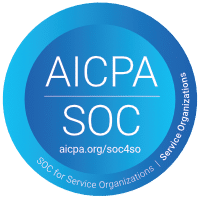Introduction: What Does a Medical Interpreter Do?
What does a medical interpreter do? What is the role of a medical interpreter in the healthcare industry? What is the importance of a medical interpreter?
Imagine a patient visiting a new doctor. The issue arises when the patient and the doctor don’t speak the same language. Navigating a medical appointment is already challenging due to the complex medical jargon. Adding a language barrier can turn a simple doctor’s visit into a daunting ordeal.
In this blog, we will discuss just how important medical interpreters are, and their role in the healthcare industry.
What is a Medical Interpreter?
A medical interpreter is an interpreter who has been properly certified for the healthcare industry. (Interpreter Training Programs) They facilitate effective communication between the patient and provider. Medical interpreters differ from standard interpreters because they specialize in medical terminology and have a thorough understanding of healthcare protocols, enabling them to accurately and effectively facilitate communication.
Now that we’ve discussed what a medical interpreter is, let’s discuss the importance of medical interpreters.
The Importance of Medical Interpreters
Medical interpreters play a vital role in ensuring health equity and language access for all patients. No one should face additional challenges in their healthcare journey simply because they speak a different language than their provider. Unfortunately, this is often the case. Medical interpreters can help alleviate these difficulties. A small miscommunication can lead to misdiagnosis, mistreatment, and even fatal consequences. Medical interpreters facilitate effective communication, ensuring that both patients and providers understand each other, promoting a safe healthcare journey.
Duties and Responsibilities of Medical Interpreters
The primary duty of a medical interpreter is to serve as a communication bridge between healthcare providers and patients who do not share a common language. However, their responsibilities extend beyond mere translation. They interpret medical jargon into layman’s terms, ensuring that patients fully grasp their medical condition, diagnosis, treatment options, and any potential risks. Medical interpreters also convey the patient’s queries, concerns, and symptoms accurately to the healthcare provider, while maintaining professional boundaries and upholding patient confidentiality.
Medical interpreters also have a crucial role in displaying cultural sensitivity. They not only translate language, but they also bridge differences in cultural norms, values, and beliefs. This understanding helps to eliminate potential misunderstandings or misinterpretations that could arise from cultural differences. By having cultural sensitivity, medical interpreters ensure that patients from different cultural backgrounds feel respected, understood, and comfortable in their interactions with healthcare providers.
Training and Qualifications Required for Medical Interpreters
The training and qualifications required for a medical interpreter involve a specific educational path, intensive training, and certification. Typically, one must have a high school diploma or equivalent and proficiency in at least two languages. Additionally, a prospective medical interpreter should undergo specialized interpreter training programs that cover medical terminology, interpreting skills, professional ethics, and cultural sensitivity. Upon completing the training, obtaining a certification from a recognized body, which often involves passing an exam and maintaining the certification through continued education.
Challenges Faced by Medical Interpreters
Medical interpreters are frequently confronted with unique tests and trials in their profession, making it an exceptionally challenging field. One of the prominent challenges they face is dealing with scenarios that are emotionally intense. In these situations, it becomes imperative for interpreters to uphold their professionalism, while simultaneously steering through conversations that can be demanding and emotionally taxing.
Not only do they have to deal with the emotional aspect, but the complexity of medical terminology further exacerbates the difficulty of their role. This becomes particularly challenging when there is no direct translation available in the patient’s native language. It can pose a significant barrier to communication, making it hard to accurately convey the medical information, which is often crucial for the patient’s treatment and wellbeing.
In addition to these challenges, interpreters may also come across cultural differences that can potentially hamper communication. These can be subtle nuances in language or distinct customs and beliefs that can lead to misunderstandings if not properly addressed.
However, despite the multitude of challenges they face, medical interpreters serve an indispensable role in the medical field. They are the bridge that connects patients and providers, ensuring that language barriers do not impede effective communication. Their role is fundamental in ensuring that patients fully understand their medical conditions and the treatment options available to them, ultimately contributing to better healthcare outcomes.
Benefits of Effective Medical Interpretation
The benefits of effective medical interpretation are vast and significant in the healthcare sector. One of the primary benefits is the enhancement of patient safety. Miscommunication or misunderstanding in medical scenarios can lead to severe consequences. However, effective medical interpretation helps to prevent such scenarios by ensuring that medical instructions, diagnoses, and treatment plans are correctly understood and followed by the patient.
Another notable advantage is the fostering of trust and rapport between patients and healthcare providers. This relationship is particularly essential in the medical industry, where patients are required to share personal and sensitive information with their healthcare providers. When patients are able to communicate effectively and understand their providers, they are likely to feel more comfortable sharing essential details, leading to more accurate diagnosis and treatment.
Effective medical interpretation also contributes to improved patient satisfaction and patient outcomes. When patients understand their medical conditions, treatment options, and potential risks, they feel more involved and confident in their healthcare journey. They can make informed decisions about their health and feel empowered, knowing that they are taking active steps towards their wellbeing.
Furthermore, medical interpretation plays a crucial role in health equity. It ensures that all patients, regardless of their language proficiency, receive the same quality of healthcare service. This aspect is particularly important in multicultural societies where language barriers can significantly impact the quality of healthcare received.
Conclusion
Medical interpreters play an indispensable role in the healthcare industry. They facilitate clear and accurate communication between patients and healthcare providers, ensuring that no information is lost or misconstrued due to language barriers. Their expertise in medical terminology and cultural sensitivity make them a vital asset in any healthcare setting. By bridging language and cultural gaps, they enhance patient safety, foster trust and rapport between patients and providers, and ultimately contribute to equitable healthcare for all. Their work helps to ensure that everyone, regardless of their language or cultural background, has access to high-quality healthcare.












